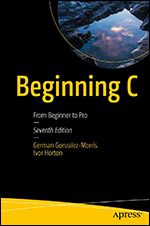100 Go Mistakes and How to Avoid Them
- 6h 27m
- Teiva Harsanyi
- Manning Publications
- 2022
Spot errors in your Go code you didn’t even know you were making and boost your productivity by avoiding common mistakes and pitfalls.
100 Go Mistakes and How to Avoid Them shows you how to:
- Dodge the most common mistakes made by Go developers
- Structure and organize your Go application
- Handle data and control structures efficiently
- Deal with errors in an idiomatic manner
- Improve your concurrency skills
- Optimize your code
- Make your application production-ready and improve testing quality
100 Go Mistakes and How to Avoid Them puts a spotlight on common errors in Go code you might not even know you’re making. You’ll explore key areas of the language such as concurrency, testing, data structures, and more—and learn how to avoid and fix mistakes in your own projects. As you go, you’ll navigate the tricky bits of handling JSON data and HTTP services, discover best practices for Go code organization, and learn how to use slices efficiently.
about the technology
Understanding mistakes is the best way to improve the quality of your code. This unique book examines 100 bugs and inefficiencies common to Go applications, along with tips and techniques to avoid making them in your own projects.
about the book
100 Go Mistakes and How to Avoid Them shows you how to replace common programming problems in Go with idiomatic, expressive code. In it, you’ll explore dozens of interesting examples and case studies as you learn to spot mistakes that might appear in your own applications. Expert author Teiva Harsanyi organizes the error avoidance techniques into convenient categories, ranging from types and strings to concurrency and testing.
About the Author
Teiva Harsanyi is a senior software engineer at Docker with experience in various domains, including safety-critical industries like air traffic management.
In this Book
-
About This Book
-
About the Cover Illustration
-
Go—Simple to Learn but Hard to Master
-
Code and Project Organization
-
Data Types
-
Control Structures
-
Strings
-
Functions and Methods
-
Error Management
-
Concurrency—Foundations
-
Concurrency—Practice
-
The Standard Library
-
Testing
-
Optimizations







